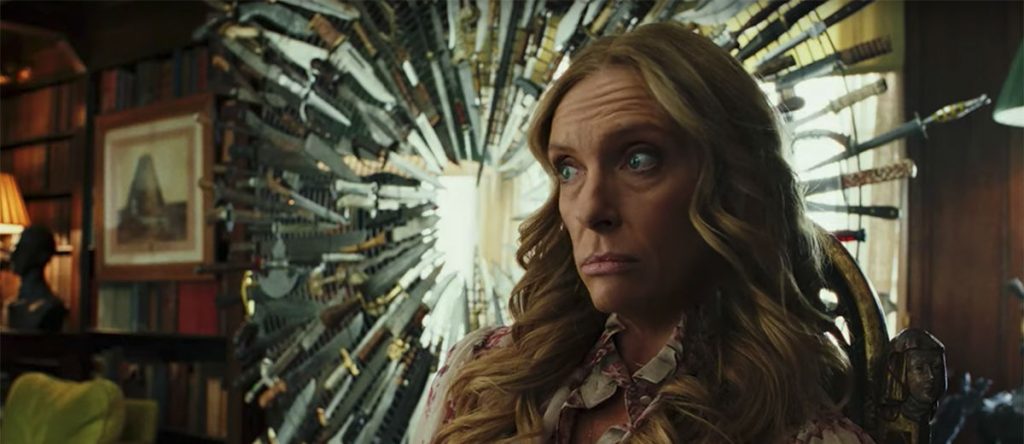Reminding Rian Johnson about his work on Star Wars is probably the last thing he wants to hear before releasing a new film.
To Johnson’s dismay, his polarising work with Star Wars: The Last Jedi will hang over his head like a toxic cloud for the rest of his career.
His divisive efforts to shake up Star Wars, defying the sci-fi fairy-tale’ traditions of Disney storytelling to transport the series into a galaxy far, far away, was met with a barrage of attacks from online trolls that was far more destructive than any assault carried out by Luke Skywalker.
While Johnson’s efforts may have divided a franchise, there is no denying him as a filmmaker willing to take big risks. His willingness to push the envelope, combining the familiar with the new, ought to be celebrated in an entertainment biz saturated with reboots, prequels and adaptations; Star Wars in 2019 guilty of releasing a video game, a TV series, and a film, all within a two-month window of each other.
Having ejected himself from the Millennium Falcon, audiences can hear Johnson breathe a sigh of relief with his pleasingly told murder-mystery, Knives Out. A film that departs from Johnson’s sci-fi roots and tackles a post-modern whodunnit.
Or so you think…
Despite setting itself up as a game of Clue, (the mysterious murder of a wealthy tycoon (an always reliable Christopher Plummer), a gated mansion stuck in yesteryear, an eccentric detective (Daniel Craig as Benoit Blanc) and a slew of peculiar characters each with their own murderous motivations) Knives Out unfolds more like a twisted game of Snakes and Ladders.
Johnson, who also wrote the screenplay, plants his shovel firmly into new ground by combining Agatha Christie inspired storytelling with modern filmmaking sensibilities. He uses characters as stand-ins for subtext, and in doing so empowers Knives Out to make pointed statements about aristocracy, the outrageous behaviour of the one-percenters achieving many of the films laughs, and Trump-era immigration politics. Guessing proves but half the fun in Knives Out’s, with the films subversiveness proving not just a ploy to deepen the films sense of mystery, but to enable it to be more than just intriguing.
However impressive Johnson’s hand is at reinvigorating a genre loved by boomers everywhere, he finds himself unable to escape his trademark divisiveness with the characters he has created.
The appeal behind Craig’s detective is apparent from his first moment on-screen; wearing his manufactured allure like Hercule Poirot wore an extravagant moustache. With Benoit Blanc, Craig lands a narcissistic, one-step-ahead-of-the-perp detective with a wacky approach to investigation. Blanc, donning a thick southern accent akin to Foghorn Leghorn, is so forcibly designed to steal scenes that Craig’s performance comes across as counterfeit.
Johnson’s abundance of characterisation is the equivalent of eating too much dessert; great in theory, stomach-turning in practice. He wants so badly to create distinguishing odd-balls that he overwhelms the film. This eccentricity-overload extends into the ensemble cast. The likes of which include Chris Evans smirking grandson, an unassuming nurse (Ana de Armas of Blade Runner 2049 fame), Toni Collette playing a free-spirited daughter-in-law (who you know shops at GOOP), an underutilised (and snide) Jamie Lee Curtis, and perpetual angry man Michael Shannon. All of these actors are given moments to shine but find themselves competing against one another to leave a lasting impression.
While refreshing to see Knives Out pay homage to a genre considered outdated, Johnson does more than just blow-off the dust and regurgitate Agatha Christie a la Kenneth Branagh. Johnson brings with Knives Out a sense of purpose that exists outside of rehashing nostalgia. He compensates for try-hardy characters thanks to a willingness to be anything but ordinary. The grand effect of this doing for the murder-mystery what Get Out had for modern horror.
Director: Rian Johnson
Cast: Daniel Craig, Toni Collette, Chris Evans
Writer: Rian Johnson



